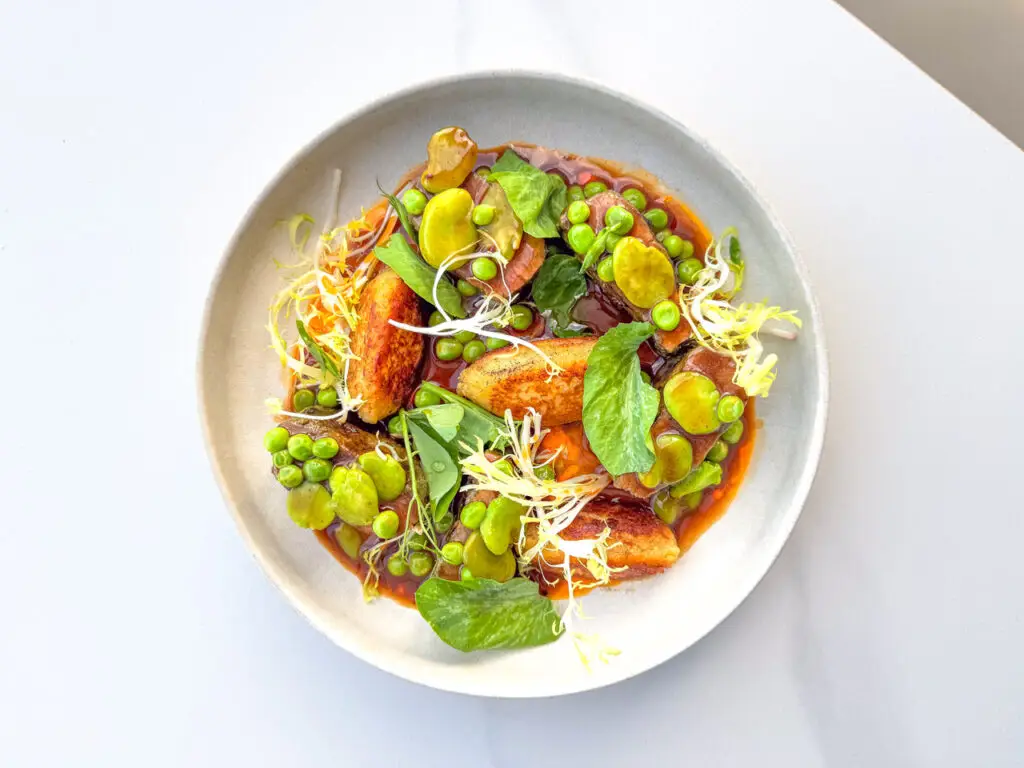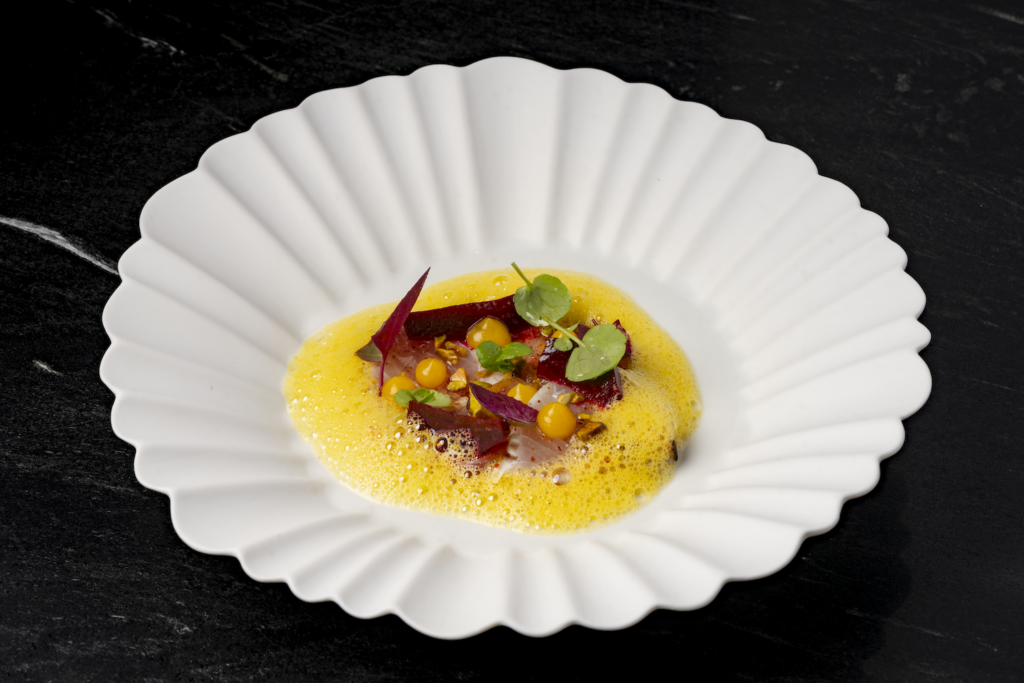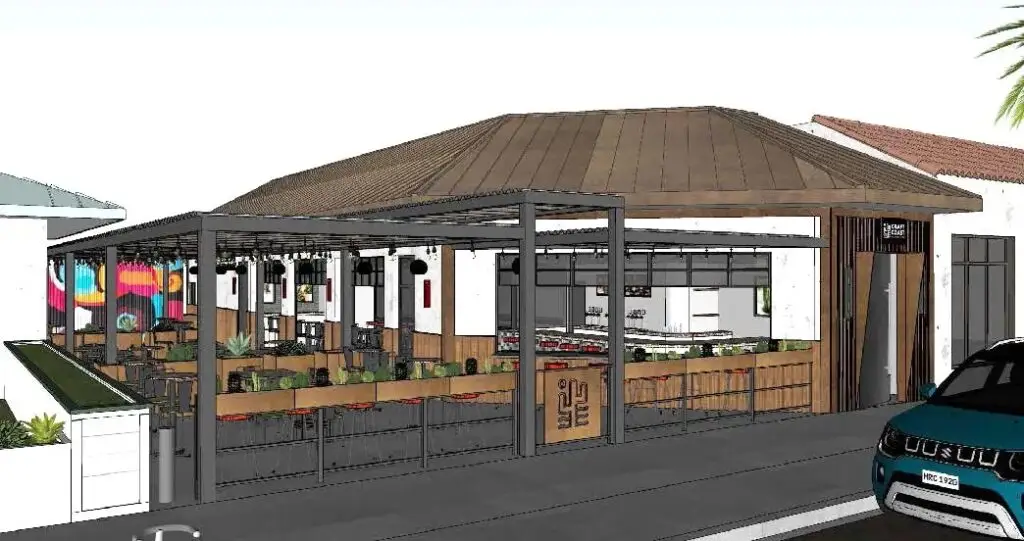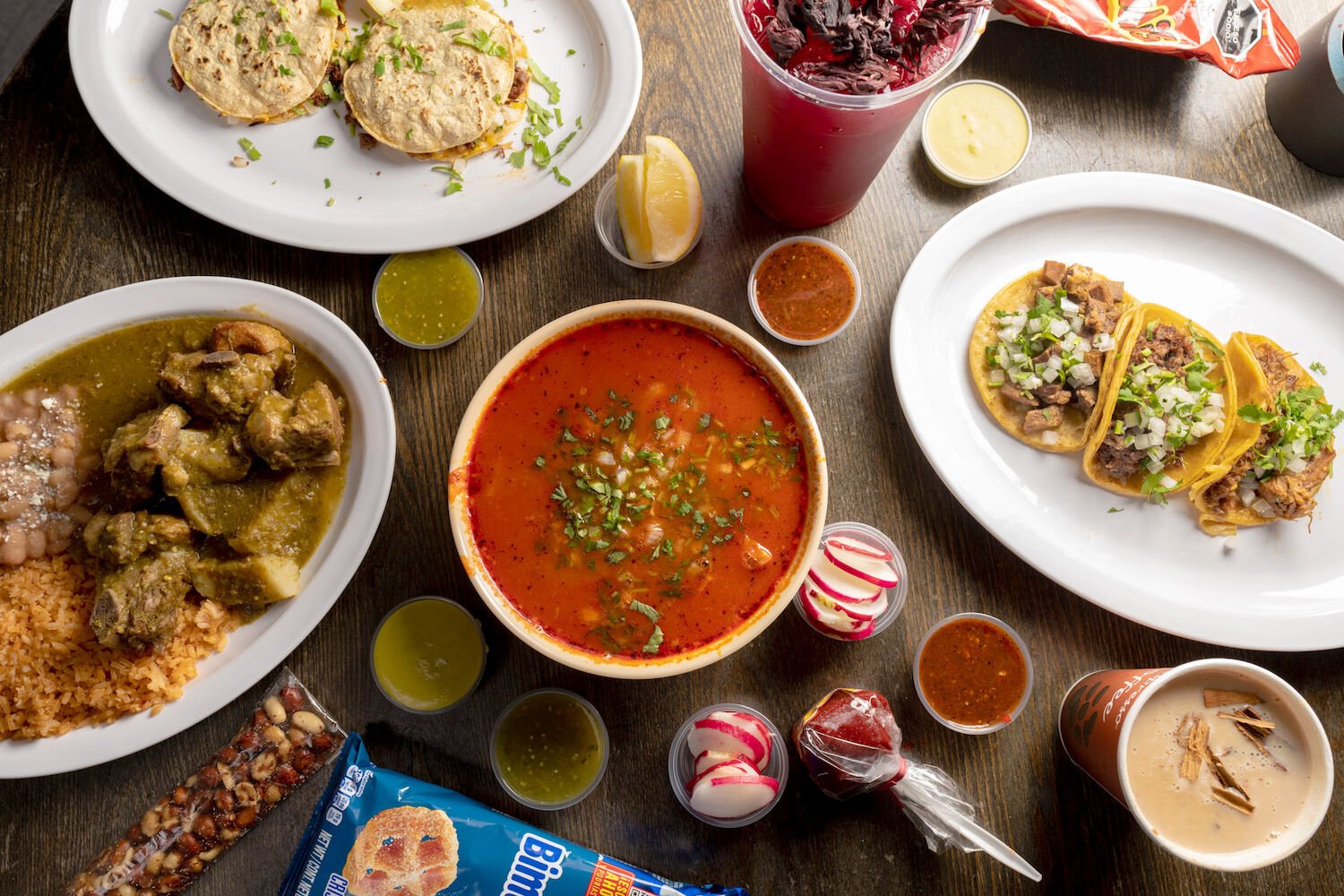
Photo Credit: James Tran
Get the tongue.
The most stunning design element of this taco shop is the line of humans that winds through the middle of it. Much more lively and interesting than a plant wall or an ostrich lamp, the line has predictable surges during meal hours, but will also just randomly appear at 10 a.m. or 3 p.m. A crushing little wave of people will materialize with a boom, corporealizing to appreciate what this family—chef Jose L. Garcia, his wife Veronica Perez, sometimes their kids helping out—can do with tortillas, meat, spices, cheese, chiles, and generational recipes (the birria is made according to abuela’s method).
Tacos are $1.99 each. They are small, simple, excellent things. You won’t get a farmers market on a tortilla here, nor cremas seasoned with bourbon and rare Indonesian herbs. Just deliciously marinated meat of your choice (carne asada, adobada, carnitas, al pastor, suadero, cabeza, lengua… you get it), onions, cilantro, and three salsa options from that little buffet cart over by the Takis snack chips, to the left of the toilet paper, near the three Virgin Mary statuettes.
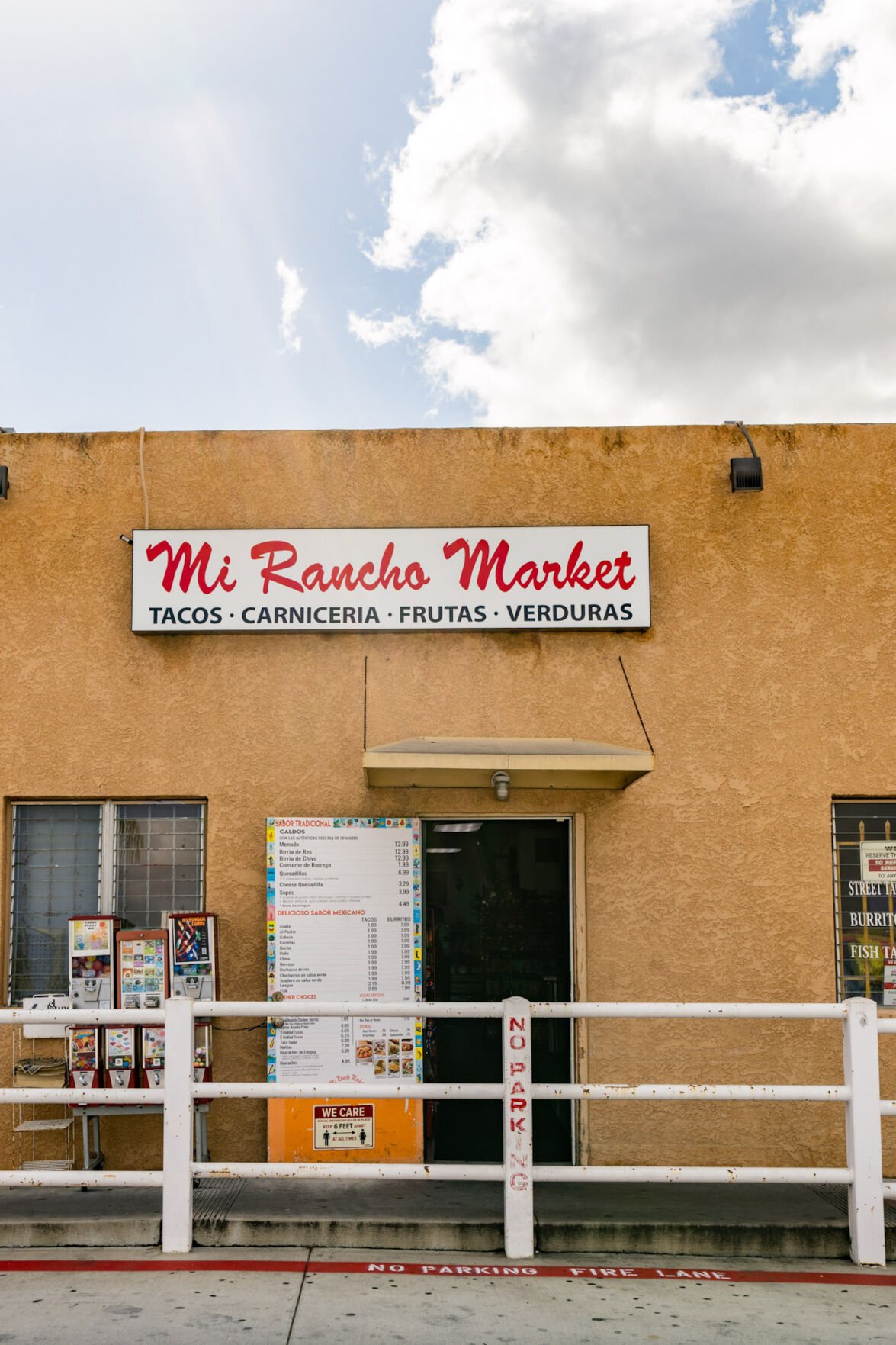
Photo Credit: James Tran
For 13 years, Mi Rancho Market has been the taco dispensary for Escondido. One of the riskiest risks a person can take—defying their wife—paid off for Jose. The couple immigrated to California from Jalisco as teenagers in the ’80s. They’d worked in a grocery store in Pasadena—Jose was a butcher; Veronica, a cashier. In 2007, they bought this little box in a parking lot, right next to beloved donut shop Peterson’s. They merely intended to be the neighborhood convenience store, where you stopped real quick if you forgot tortillas or paper towels at the main supermarket.
Jose had cooking in his blood. He kept bugging his wife to let him make and sell tacos. The store had a built-in kitchen, he pleaded. No, no, no, she said. Then, one day, she showed up and carne asada was sizzling on the plancha. “He only sold $16 worth of tacos all day,” she recalls. “And I was like, ‘SEE!?’”
But Jose’s tacos were very, very good. Word spread.
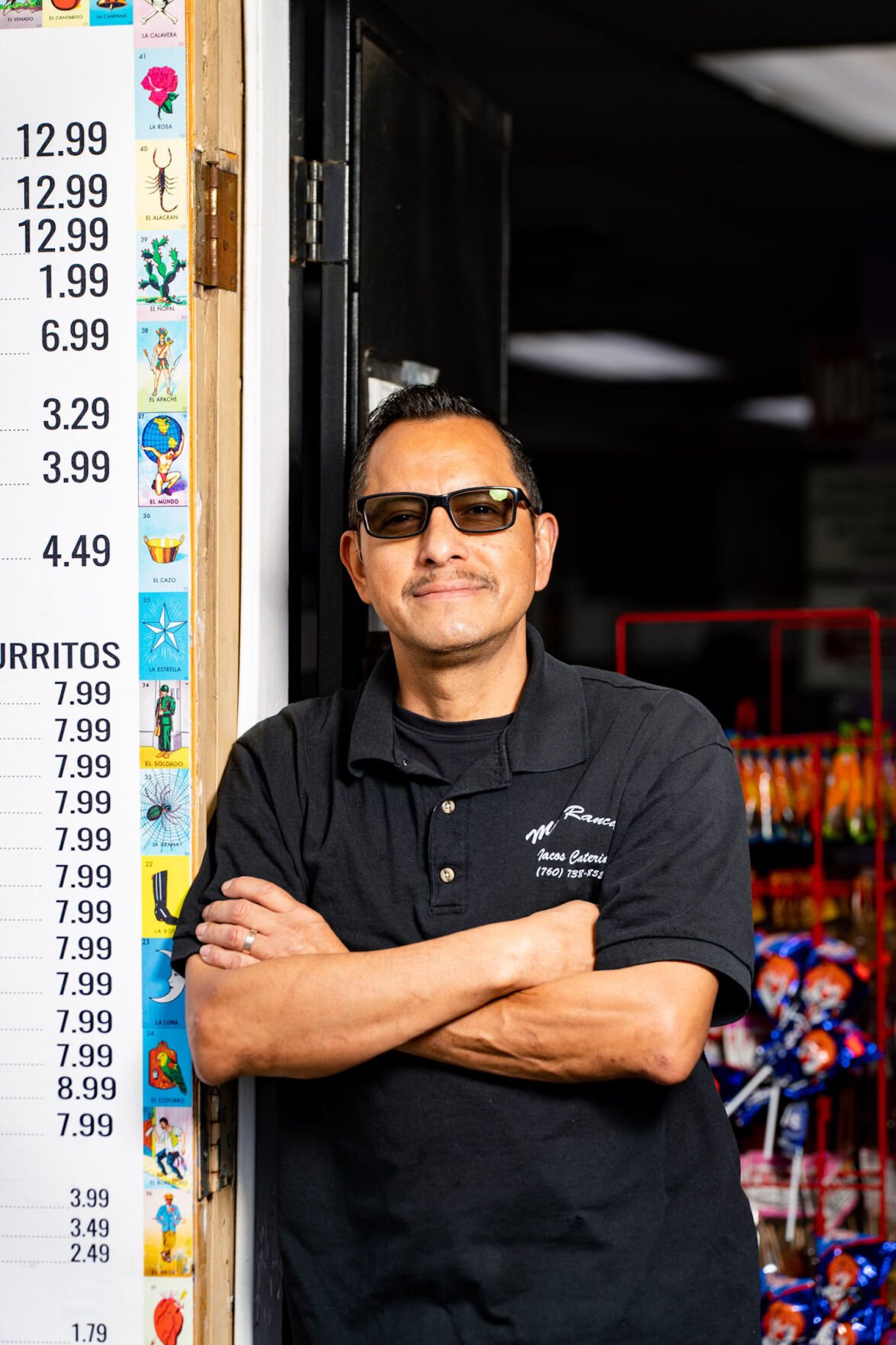
Photo Credit: James Tran
San Diego’s biggest Latino communities are mostly clustered at the fringes of the county, both south (Chula Vista, National City, Bonita) and north (Vista, Escondido). Since 2010, Latinos have made up the largest part of Escondido’s population (52 percent). Escondido’s large agricultural community has at least something to do with that, since 92 percent of California farmworkers are Latino. This is where San Diego grows most of its avocados and citrus and wine (agriculture in Escondido accounts for 20 percent of the county’s total output).
Mi Rancho became an unofficial town hall, where whole families regularly commune over al pastor, between soda coolers. Affordability is a crucial, key element for any place to become a cultural hub (think churches and donut shops)—and at two bucks a taco, Mi Rancho excludes very few. Sitting here over two days, I watch friends, families, coworkers spend not the big moments of life, but the small, mundane, connective-tissue moments that make the strongest human bonds.
Again, get the tongue, or lengua. It’s the best taco at Mi Rancho (and also at most other taco shops), long boiled in aromatics until tender, almost silky, in consistency. Tongue doesn’t bother those raised near the deeper end of Mexican food culture (or cuisines including, but not limited to, Portuguese, British, German, Albanian, Russian, and Jewish). But it’s fairly easy to understand why those who are unfamiliar flinch. “I don’t want to French-kiss my food,” is the common dissent.
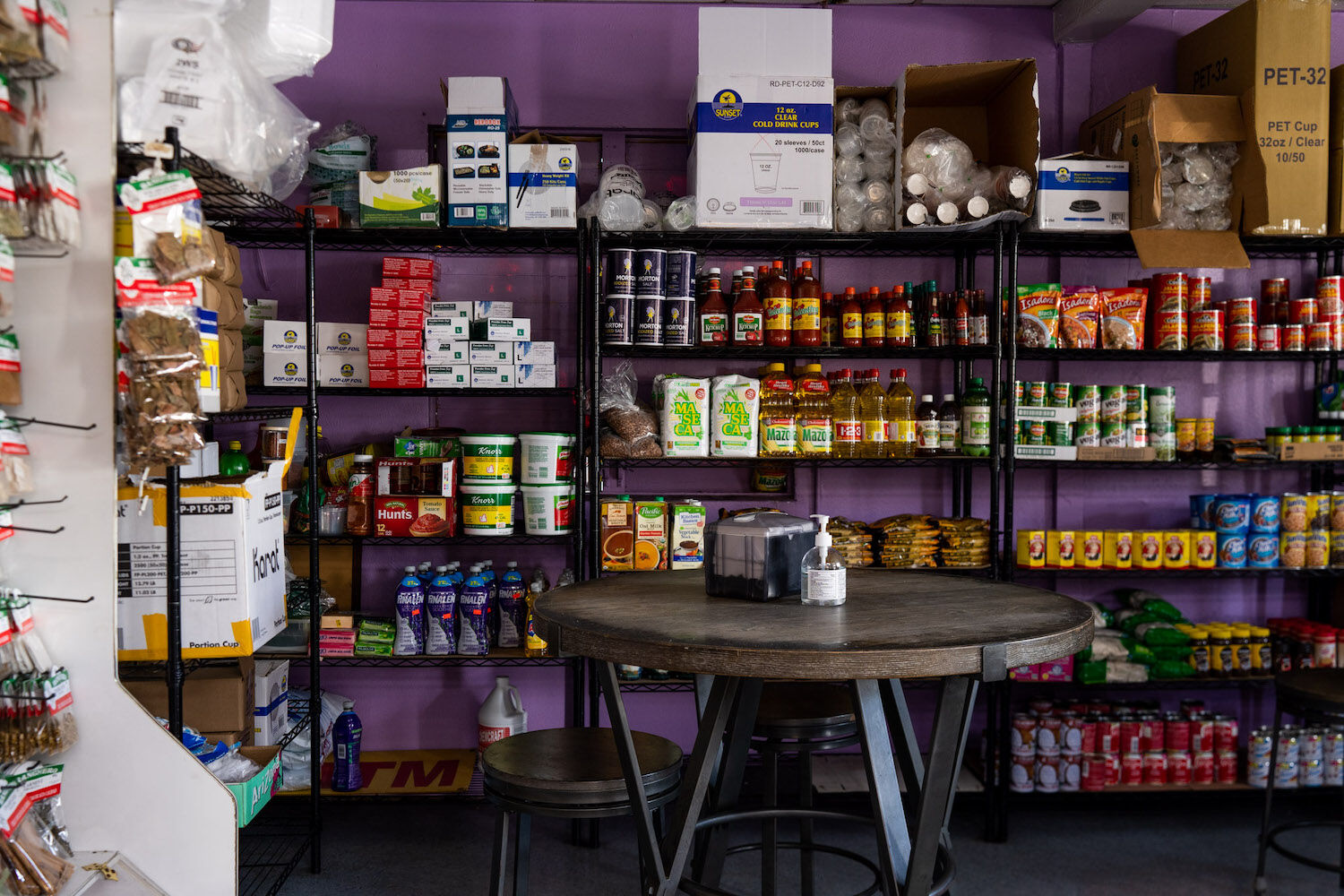
Photo Credit: James Tran
This is because many of us in the US have a complicated, almost farcical relationship with our meat. Humans are far from the only species on the planet that eats meat (63 percent of species are carnivores), but we are the most burdened with our bucket-sized brains and that organ’s ability to philosophize about eating animals and bum ourselves out about it.
That bleeding-heart function is crucial, keeping us from consuming gross amounts of meat, inspiring us to respect the life that was given for our steak (and its impact on the environment), making us give a damn about not being a quadruple-cheeseburger, top-of-the-food-chain jerkwad. But where the brain goes wrong is to overcompensate, to rationalize, to fake us out.
Case in point: We smoke-and-mirror the process of eating meat. Most American grocery stores moved the butcher sections out of sight around the 1980s. (We also stashed them away because customer-facing butchers were expensive.) Then we yanked them from the stores altogether. We butcher in secrecy, then present perfect pork chops and thighs and ribeyes wrapped in packaging on the shelf, neatly stacked as if they’re just another consumable product, no different than an iPhone.
I’ve long had a lot more respect for markets in other cultures, where animals are hung on display—not as a dumb flex of food chain supremacy, but as a tacit acknowledgement of the realities of this transaction.
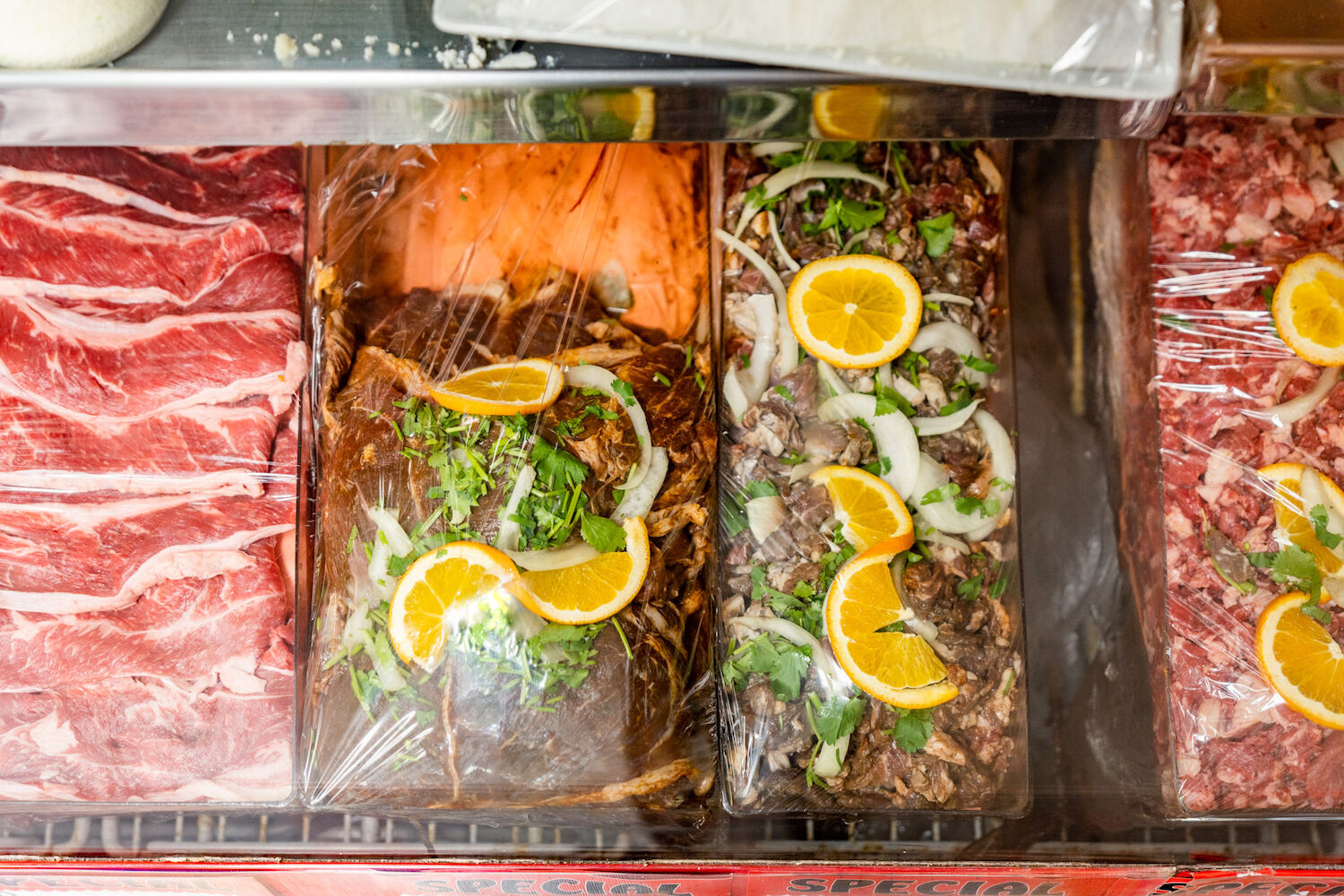
Photo Credit: James Tran
In the corner of Mi Rancho, there are great piles of marinated beef in a case, un-preciously pressed up against the glass. In a smaller terrarium there are piles of deep-fried pig skin—glorious chicharrones, the original snack chip.
In the US, too, we tend to steer away from anything having to do with the “face” of food animals, only eating the back (sirloin) and other “prime” cuts. Which is ridiculous, wasteful, and simply less delicious. Lengua and cabeza (head)—most often, beef cheeks—are rife with connective tissue, which melts and lends incredible umami to the dish, much in the same way it does in oxtail. Mi Rancho slow-cooks these cuts until the meat is like shredded short ribs, the moistest roast.
Fight your instinct to order carne asada (a strong compulsion, but you can do this). Instead, try the two dishes that feature their fantastic, tomatillo-based chile verde: the suadero taco (suadero is a leg- and loin-area meat, smooth and flavorful) and their costillas de puerco (tender pork braised in green salsa).
And then their soups. The birria de chivo—goat, the original protein of the dish that seems to have become the official food of San Diego—is redolent with chiles and oil and just the right amount of gaminess.
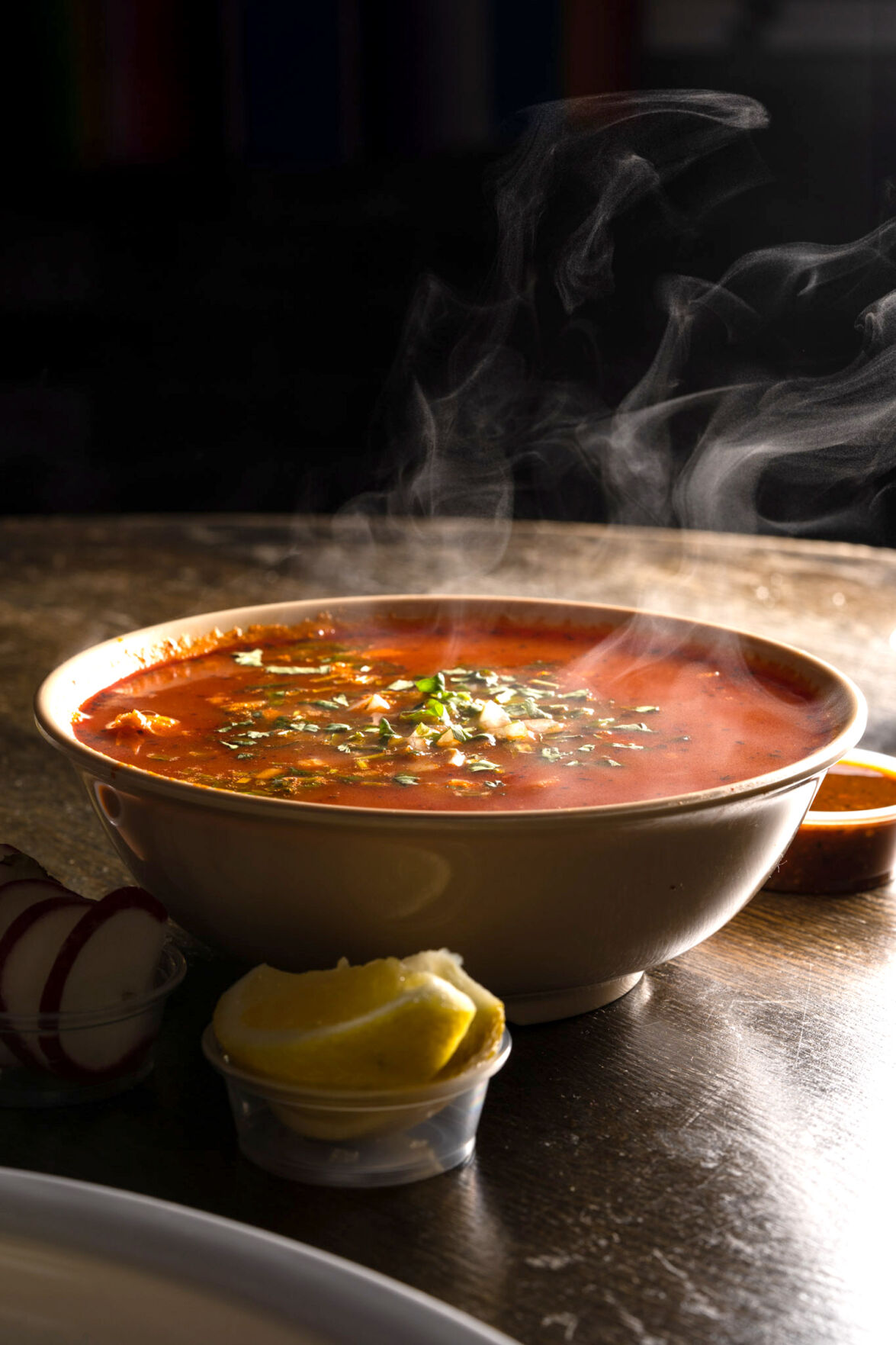
Photo Credit: James Tran
As for menudo, I’ve found it hit-or-miss in San Diego. The special-occasion soup and hangover cure—made of tripe (stomach) with chiles, onions, oregano, and lime juice—can be thin, rushed, pleading for more time and patience to develop its flavors. After tasting Mi Rancho’s, I took it to a family friend. Born and raised in Guadalajara, she’s a fantastic Mexican cook and very honest about any food I beg her to taste. She didn’t care for Mi Rancho’s quesabirria tacos (“too oily”).
PARTNER CONTENT
But the menudo? “Oh, my god,” she said. The best she’s had in San Diego, she reports—and while I haven’t tried them all, I have to agree with her.
Mi Rancho’s is intensely reduced, flavorful, a genuine cure.

